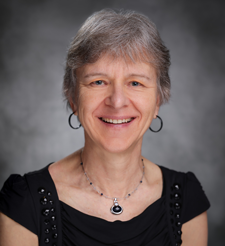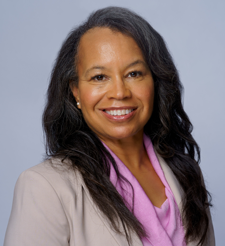

Friederike L. Jayes, PhD
Principal Investigator of Collagenase, Assistant Professor in Obstetrics and Gynecology and Pathology, Duke University
Dr. Jayes is a veterinarian and reproductive physiologist with basic and translational research experience in multidisciplinary, collaborative settings. She received her Doctor of Veterinary Medicine from Justus Liebig University Giessen in Germany (1987) and her Ph.D. from North Carolina State University (1995). She joined Duke in 2010 as an Assistant Professor in the Pathology Clinical Science Department and as an Assistant Professor in Obstetrics and Gynecology Clinical Science Department. Her current research focuses on uterine fibroids.
Dr. Jayes has focused on studying the surrounding tumor environment. Specifically, fibroid tumors mainly comprise collagen, a stiff structural protein. Dr. Jayes is testing whether degrading the collagen in these fibroids using collagenase could provide a new avenue of treatment.
She collaborates on this project with Dr. Darlene Taylor, a chemist who developed a drug delivery system that, combined with collagenase or other anti-fibrotic drugs, could improve the localization and activity of the drugs within the treated tumors. Combination drug delivery systems would allow for lower drug dosages and reduce the need for repeat injection treatments.
Dr. Jayes is passionate about providing guidance and support for students, postdocs, and faculty career development. She is dedicated to increasing diversity and equity in the biomedical workforce through mentoring, community building, research, and leadership. Her broad educational background and work experience in clinical and non-clinical academic settings, government institutes, and industry collaborations have given her a unique perspective on diverse pathways to success.
She is the Duke PI of an NIH U01-award investigating components of peer mentoring to enhance racial and ethnic diversity in the biomedical workforce (PROMISE study). She also served as the Co-Director of the Duke Clinical and Translational Science Institute (CTSI) Community of Scholars (CoS) and Program Coordinator of the K12 career development award, Building Interdisciplinary Research Careers in Women's Health (BIRCWH). The Duke BIRCWH program has partnered with North Carolina Central University (NCCU), a historically black institution (HBCU), since 2002.

Darlene K. Taylor, PhD
Principal Investigator of LiquoGel™, Professor of Chemistry and Biochemistry, North Carolina Central University
Dr. Taylor is trained as a chemist with basic science, biomedical materials, and translational medicine research interests, giving her a collaborative and multidisciplinary background. Dr. Taylor completed her master's degree at North Carolina A&T State University whilst acting as a Scholar in Residence at Rohm and Haas Company in Norristown, PA. She then attended the University of North Carolina at Chapel Hill to conduct her doctoral research in polymer physical chemistry. Upon completing her doctoral degree, Dr. Taylor worked as a postdoctoral fellow at UNC-Chapel Hill on designing and characterizing polymer materials for novel applications.
Dr. Taylor joined the North Carolina Central University (NCCU) faculty as an assistant professor in Chemistry in 2005. In addition to her appointment at NCCU, she is an Adjunct Assistant Professor in the Department of Obstetrics and Gynecology at Duke University. Dr. Taylor is investigating the effectiveness of various materials for use in technologies that range from solar panel cells to drug delivery vehicles.
Dr. Taylor's background uniquely qualifies her to train students at NCCU in polymer theory, polymer methods and development, materials design, and physical characterization of these materials. In the classroom, she views herself as a facilitator working to create an environment where students become responsible learners, critical and independent thinkers, and effective communicators. Her teaching efforts are significantly integrated with her research to provide students with real-life applications of scientific principles in emerging technologies.
She is collaborating with Dr. Jayes to utilize her novel hydrogel drug delivery system, Liquogel, to develop a new treatment for uterine fibroids. Liquogel could improve uterine fibroid treatment; It is liquid at room temperature but solidifies into a gel at body temperature, which could enhance uterine fibroid treatment by allowing prolonged drug administration within the fibroid. This therapy could extend care to many women who suffer from this condition and have applications in treatments of other diseases.
Project Collaborators
-
Dr. Phyllis Leppert, Duke University
-
Dr. James (Jim) Segars, Johns Hopkins University
-
Dr. Bhuchitra Singh, Johns Hopkins University
-
Dr. Ria Corder, University of Tennessee, Knoxville
-
Dr. Saad Khan, North Carolina State University